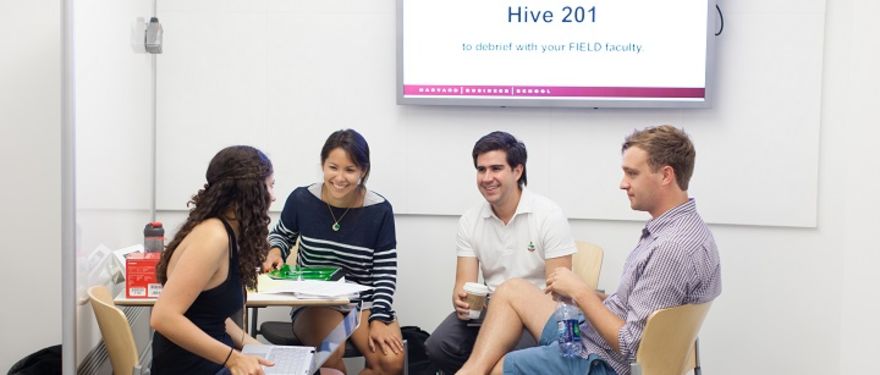The case method is an integral part of the learning experience at HBS, and we think it’s one of the best ways to prepare students for the challenges of leadership.
While HBS MBAs have been reading cases for many decades, the complementary FIELD method (which aims to bridge the knowing-doing gap) has only been around since 2011.
FIELD is a required course for first year students and consists of two modules: FIELD Foundations and FIELD Global Immersion.
To learn more about the FIELD Foundations portion of the course we connected with Janelle Mills – the Associate Director of MBA Student and Academic Services here at HBS.
Can you tell us more about FIELD Foundations?
FIELD Foundations is a required curriculum course which focuses on building leadership skills, primarily working in teams and enhancing self-awareness. The course provides students with the opportunity to put theory into practice though experiential exercises and working in small teams. This is a first term course of roughly ten sessions. The FIELD Foundation classes tend to be a bit longer than the 80-minute traditional class session.
When did this program launch and how did the idea come about?
After the school’s 100th anniversary, several faculty participated in an analysis of the MBA Program. They took a closer look at what was working and what we could improve upon. Feedback from companies and alumni indicated that the school should provide more opportunity for team experiences. FIELD was born out of that reflection in 2011.
What do you hope students get out of the course?
The hope is that through various action-based learning exercises students develop key skills in communication, feedback/coaching, decision making, and emotional intelligence while also gaining insight into who they are as individuals and leaders.
What kind of activities do students participate in?
That’s a secret. We don’t want to tip our hand at the experience – but one favorite involves taping numbers on everyone’s heads.
How does the course evolve each year?
Every year the course head will review each session, analyze student feedback and make adjustments. The FIELD faculty are a very dynamic group who tackle some sensitive topics with a fresh take every year. While there are changes from year to year, the goals have remained steady.
What is the faculty involvement in this course?
Much like other units, the teaching group contributes to the course through their personal research and experience. They all help drive the pedagogy to create compelling teaching plans. Many of the conversations in FIELD Foundations are more personal than the typical case-based class. The FIELD faculty are pivotal in leading discussions.
How is the course connected to the FIELD Global Immersion?
FIELD Global Immersion provides students the opportunity to take the skills developed in FIELD Foundations and put them into practice on an intensive project, solving real-world problems and creating new business opportunities. The two courses have a connecting line of self- and social-awareness.
How does FIELD Foundations complement the case method?
FIELD Foundations is an extension of the case method learning model. It provides a means through which students learn about themselves, about how to work with others, and about how to have an impact on a larger community. This is through action as well as discussion.
What do you think prospective students should know about this course?
The skills developed in this course are crucial in any industry environment. It is an opportunity for students to discover the best in themselves and in others, and think critically about who they want to be – both in their workplaces and in their lives.

